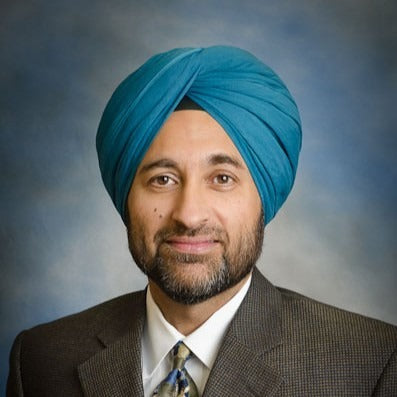
Can Tongkat Ali Cause Gyno? Fitness Men Should Be Aware
Many men turn to bodybuilding to stay fit and maintain their masculinity as they age.
Unfortunately, supplementing with hormones and steroids can have dangerous side effects, such as Gynecomastia (Gyno) – when the male chest develops overly large breasts rather than firm muscles.
Tongkat Ali is a popular testosterone booster among bodybuilders, but what are the potential risks associated with its use?
In this blog post, we look at whether Tongkat Ali can cause Gyno and other health concerns, and provide advice for bodybuilding men who want a safe and healthy diet plan.
Before exploring further, please read the disclaimer located at the end of this webpage.
Key Takeaways
- Overdosing on aromatase inhibitors can cause gynecomastia.
- Tongkat Ali does not cause gynecomastia if used correctly and not in excess.
- Using Tongkat Ali appropriately helps prevent gynecomastia and improves muscle growth.
Can Tongkat Ali Cause Gyno?
Currently, no scientific studies have confirmed that Tongkat Ali causes Gynecomastia, also known as 'gyno.'
Additionally, there have been no reported cases of Gyno directly linked to Tongkat Ali.
Gynecomastia can occur not only from excessively high estrogen levels but also from estrogen levels that are too low, which cause a hormone imbalance.
Therefore, overusing aromatase inhibitors can also lead to gynecomastia. This has caused concern among the Tongkat Ali community, particularly bodybuilders.
However, when using aromatase inhibitor such as Tongkat Ali in moderation and at the correct dosage, it does not cause gynecomastia. Instead, it can support muscle growth due to its natural testosterone-boosting properties, helping to balance hormones in the body.
So, what exactly causes Gyno, and why do people associate it with Tongkat Ali? Let's delve deeper into this topic to better understand the underlying mechanisms involved.
What is Gyno?
Gyno, or Gynecomastia, occurs when male breasts enlarge due to the increase in breast tissue.
Various factors can cause this condition, including hormonal imbalances, obesity, certain medications, or the use of anabolic steroids.
The most common cause of Gyno is the overproduction of the hormone estrogen in men, resulting in the growth of male breast tissue.

What Causes Gyno?
Due to its prevalence, there is extensive research on the condition of Gynecomastia in males. Gynecomastia commonly affects various age groups, including newborns, adolescents, and older men.
While Gynecomastia can resolve on its own in some cases, many individuals, especially those engaged in training or bodybuilding, are concerned about this issue.
Gynecomastia can occur in two forms: Physiologic Gynecomastia and Non-physiologic Gynecomastia.
About Physiologic Gynecomastia:
Newborns have the highest prevalence of Gynecomastia.
Adolescents may experience Gynecomastia due to delayed production of free testosterone and increased sensitivity of breast tissue to normal male estrogen levels.
Other causes include using supplements, medications, genetics, or delayed development during puberty.
Men aged 50 to 80 have a lower prevalence than the previous two groups.
About Non-physiologic Gynecomastia:
The causes of non-physiological Gynecomastia in males are primarily attributed to an imbalance between androgens and estrogens in the breast tissue, specifically lower levels of androgens such as testosterone. Several factors contributing to this imbalance include:
- The use of medications such as antipsychotics, antiretroviral, and long-term prostate cancer therapies.
- Using supplements and stimulants, aromatase inhibitor, especially anabolic steroids, can lead to irreversible Gynecomastia due to the suppression of natural testosterone production.
- The use of substances like marijuana, heroin, or amphetamines.
- Cirrhosis: Patients with alcohol-related liver disease risk Gynecomastia due to phytoestrogens in alcohol and direct inhibition of testosterone production by ethanol.
- Primary hypogonadism is also a cause of Gynecomastia.
- Rarely, tumors can cause Gynecomastia, but it is listed as a potential cause.
- Hyperthyroidism: Gynecomastia occurs in 10 to 40% of men with hyperthyroidism, although it is rarely the sole symptom.
- Other factors such as chronic renal insufficiency, ulcerative colitis, cystic fibrosis, obesity, exposure to phthalates and lead, emotional stress, and repetitive mechanical stress leading to unilateral symptoms can contribute to Gynecomastia.
You can also explore more details about Gynecomastia in these scientific studies:
- Braunstein, G. D. (1993). Gynecomastia. The New England Journal of Medicine, 328(7), 490–495. https://doi.org/10.1056/NEJM199302183280708
- Harmeet Singh Narula, & Carlson, H. E. (2007). Gynecomastia. Endocrinology and Metabolism Clinics of North America, 36(2), 497–519. https://doi.org/10.1016/j.ecl.2007.03.013
Tongkat Ali Mechanism of Action on Hormones
Traditionally, Tongkat Ali is used to enhance testosterone levels and, theoretically, it is believed to reduce the risk of developing Gynecomastia (commonly referred to as "gyno").
The mechanism of action of Tongkat Ali involves compounds like eurycomanone, which increase testosterone levels by inhibiting the conversion of testosterone into estrogen, potentially reducing the risk of Gynecomastia.
Additionally, other compounds such as alkaloids and quassinoids play a role in improving muscle mass and reducing body fat through the mechanism of increasing luteinizing hormone (LH) production, which stimulates testosterone production in the testes [4].
This is also the mechanism behind Tongkat Ali's benefits in improving bodybuilding and muscle.
Moreover, while Tongkat Ali may increase serum estradiol levels in postmenopausal women, there is limited research to suggest that it elevates estrogen levels in men. Interestingly, its benefits are not limited to younger users; many individuals over 50 have also reported positive results.*
For example, Tony La Selva, a 59-year-old, shared that the product has helped him experience muscle growth rates comparable to those he achieved in his 30s, provided he maintains a consistent exercise routine.*
Read more: Does Tongkat Ali Cause Hair Loss? Does It Increase DHT Levels?
Does Tongkat Ali Improve or Cause Gyno?

After investigating the truth about the rumor "Can Tongkat Ali cause Gyno?" and the mechanism of Tongkat Ali in the body, some key points can be summarized as follows:
- The mechanism underlying Gyno involves an imbalance between estrogen and androgens, especially testosterone, which is much decreased.
- Tongkat Ali operates by increasing testosterone production through the stimulation of luteinizing hormone, primarily facilitated by the compound eurycomanone. Other compounds, such as alkaloids and quassinoids, aid in muscle improvement, fat reduction, and the stimulation of testosterone production in the testes.
- Therefore, Tongkat Ali does not inhibit the natural growth of testosterone; on the contrary, it stimulates hormone development. Additionally, Tongkat Ali also has the effect of reducing and preventing this condition.
Despite its beneficial effects, especially improving Gyno, Tongkat Ali may present some potential side effects you should be aware of.
Predominantly, these may include insomnia, restlessness, and irritability, which are often related to its stimulatory impacts.
Sometimes, individuals might experience mild symptoms such as bloating, nausea, or diarrhea.
It is always advisable to consult a healthcare provider before beginning a course of Tongkat Ali, especially for those under other medication or having pre-existing health conditions.
Read more: Can Diabetics Take Tongkat Ali - Studies, Benefits And Dosage
Methods For Preventing Gyno
Gynecomastia can be prevented and treated through various methods.
Maintaining optimal hormone levels through dietary and lifestyle modifications is crucial in preventing the development of Gynecomastia.
This includes avoiding or reducing the use of anabolic steroids, limiting alcohol consumption, exercising regularly, and maintaining a healthy weight.
It's important to note that Fenugreek and D-Aspartic Acid and N-Methyl D-Aspartic Acid can potentially induce Gynecomastia, so individuals prone to or currently experiencing Gynecomastia should avoid the use of DAND and Fenugreek.
You may also like: Tongkat Ali Vs Fenugreek: Comparison And Combination
Additionally, certain supplements like Tongkat Ali may also be beneficial in dealing with Gynecomastia. If the condition persists despite lifestyle changes, medical interventions should be sought after consulting a doctor.
Frequently Asked Questions
Is There A Possibility That Tongkat Ali Could Lead To Swollen Nipples?
There is no evidence that Tongkat Ali affects nipple swelling or causes Gynecomastia. As mentioned earlier, Tongkat Ali works by stimulating the production of luteinizing hormone (LH), which increases testosterone levels in men and helps reduce the risk of Gynecomastia.
Can Tongkat Ali Potentially Result In An Increase In Breast Size?
Tongkat Ali is not known to increase breast size in men. Its primary function is to stimulate testosterone production, which, in turn, may help prevent conditions like Gynecomastia, characterized by the enlargement of male breast tissue.
Does Tongkat Ali Have The Potential To Exacerbate Gynecomastia (Enlarged Breast Tissue In Males)?
Tongkat Ali does not exacerbate Gynecomastia. It boosts testosterone production, which can help in preventing and managing Gynecomastia. However, every individual is different, and reactions to supplements may vary, so it's crucial to consult a healthcare provider before starting any new supplement regimen.
Conclusion
While Tongkat Ali is not a cause of Gynecomastia (Gyno), it is often mentioned in the context of the question, "Can Tongkat Ali cause Gyno?"
This article has clarified the mechanism and the relationship between Tongkat Ali and Gynecomastia. Whether you're new to this herb or well-acquainted with it, you now have a better understanding of how Tongkat Ali is related to Gynecomastia.
As a result, you can confidently use Tongkat Ali to improve your physique. However, always remember that improper use and excessive doses of Tongkat Ali can lead to adverse effects.
If you are looking for the best Tongkat Ali supplement, this review is for you:
References
- [1] Desforges, J. F., & Braunstein, G. D. (1993). Gynecomastia. The New England Journal of Medicine, 328(7), 490–495. https://doi.org/10.1056/nejm199302183280708
- [2] DICKSON, G. (2012). Gynecomastia. American Family Physician, 85(7), 716–722. https://www.aafp.org/pubs/afp/issues/2012/0401/p716.html
- [3] Harmeet Singh Narula, & Carlson, H. E. (2007). Gynecomastia. Endocrinology and Metabolism Clinics of North America, 36(2), 497–519. https://doi.org/10.1016/j.ecl.2007.03.013
- [4] H. Pratomo. (2017). Eurycoma longifolia extract increases intracellular production activity of luteinizing hormone (LH) in pituitary. AIP Conference Proceedings. https://doi.org/10.1063/1.4991216
Testimonial Disclaimer
*The testimonials presented on this website are provided by individuals based on their personal experiences with our products. These testimonials represent individual opinions and experiences, which may not be typical or applicable to all users of our products. Results may vary depending on a variety of factors, including individual health, lifestyle, and adherence to product usage instructions.Author

Product Disclaimer
Including an ingredient or study does not evaluate, endorse, or recommend any Vinatura product or any third-party product. Some ingredients discussed may not be used in any Vinatura product.
The content of the articles has not been evaluated by the Food and Drug Administration (FDA) and is not intended to promote or endorse any specific product. Any products sold on this website are not intended to diagnose, treat, cure, or prevent any disease.
Opinions and Endorsements
Any claims, statements, or opinions expressed in the articles are those of the author(s) and do not necessarily reflect the views or opinions of the manufacturers of the dietary supplement products. The products sold on this website are separate from the content of the articles and are not directly endorsed or associated with the information presented here.
Liability Disclaimer
The author(s) of the articles, website, and manufacturers of the dietary supplement products do not assume any liability for any potential consequences arising from the use of the information provided in the articles. Ingredient effects, dosages, and safety vary by individual, formulation, and context; some ingredients interact with medications or may be unsuitable during pregnancy or lactation. It is recommended that individuals consult with a qualified healthcare professional before making any dietary or lifestyle changes, including the use of dietary supplements.
Product Usage
Please refer to the product labels and packaging for specific usage instructions and guidelines for the dietary supplement products sold on this website.
Customer Support
For any concerns or questions regarding the dietary supplement products, please contact our customer support team, who will be more than happy to assist you.





Leave a Comment
Be the first to comment.
What do you think?